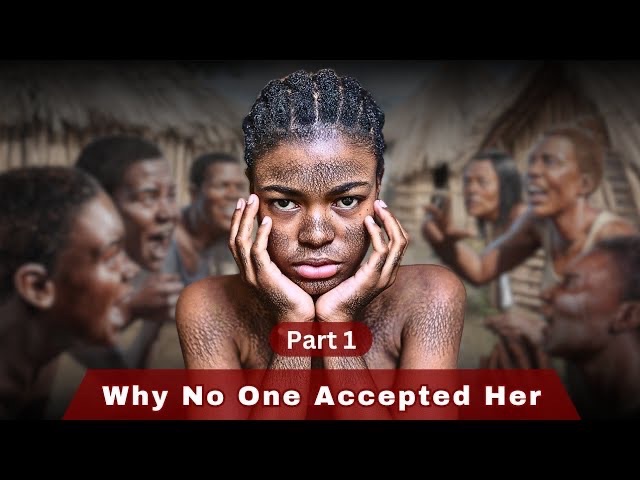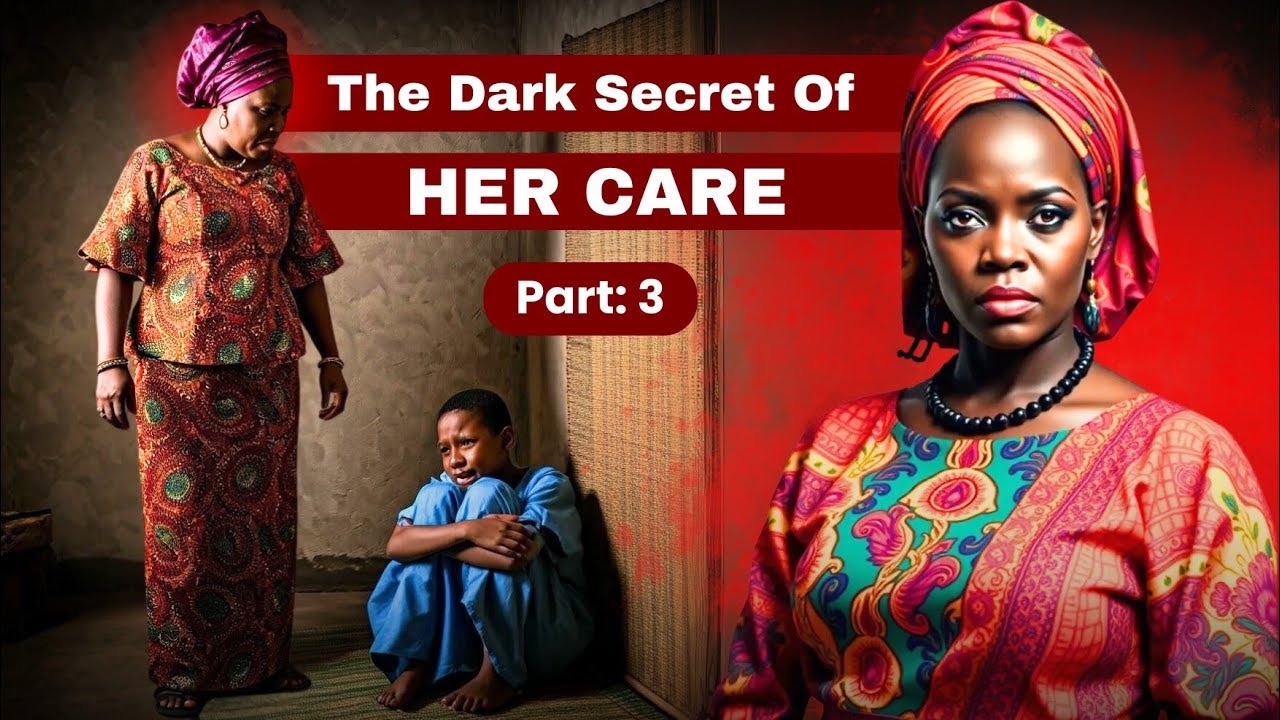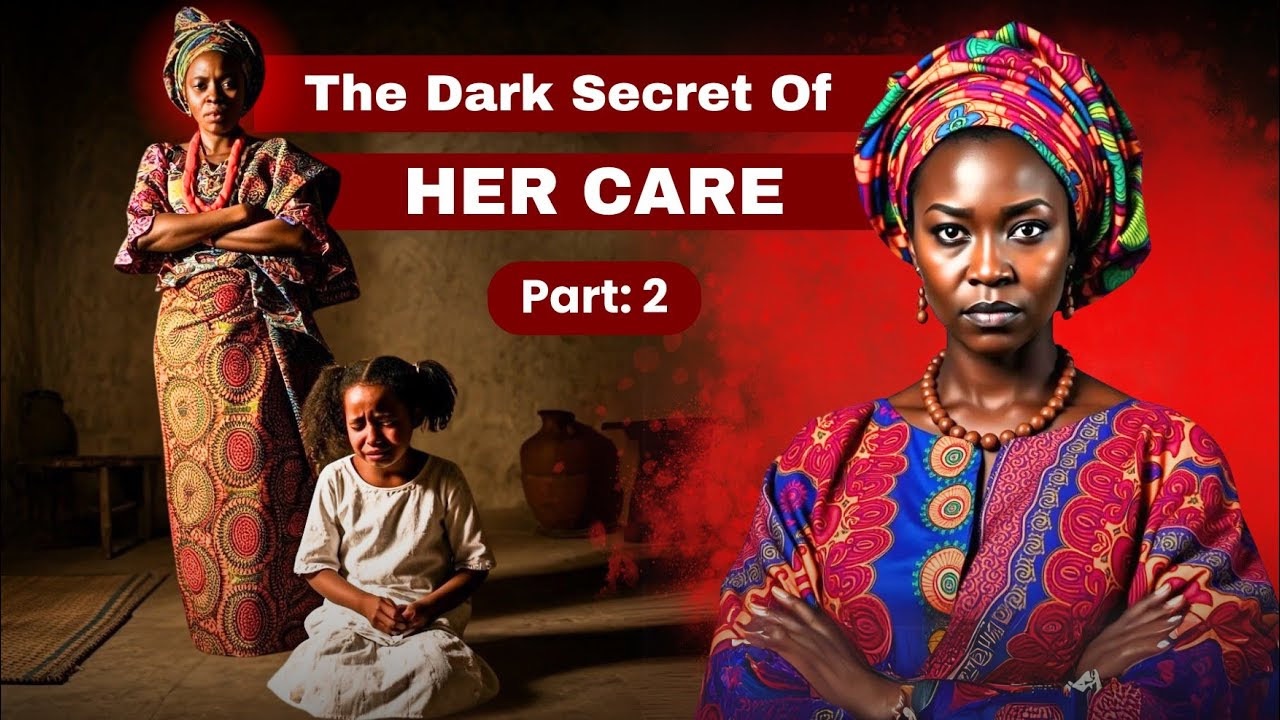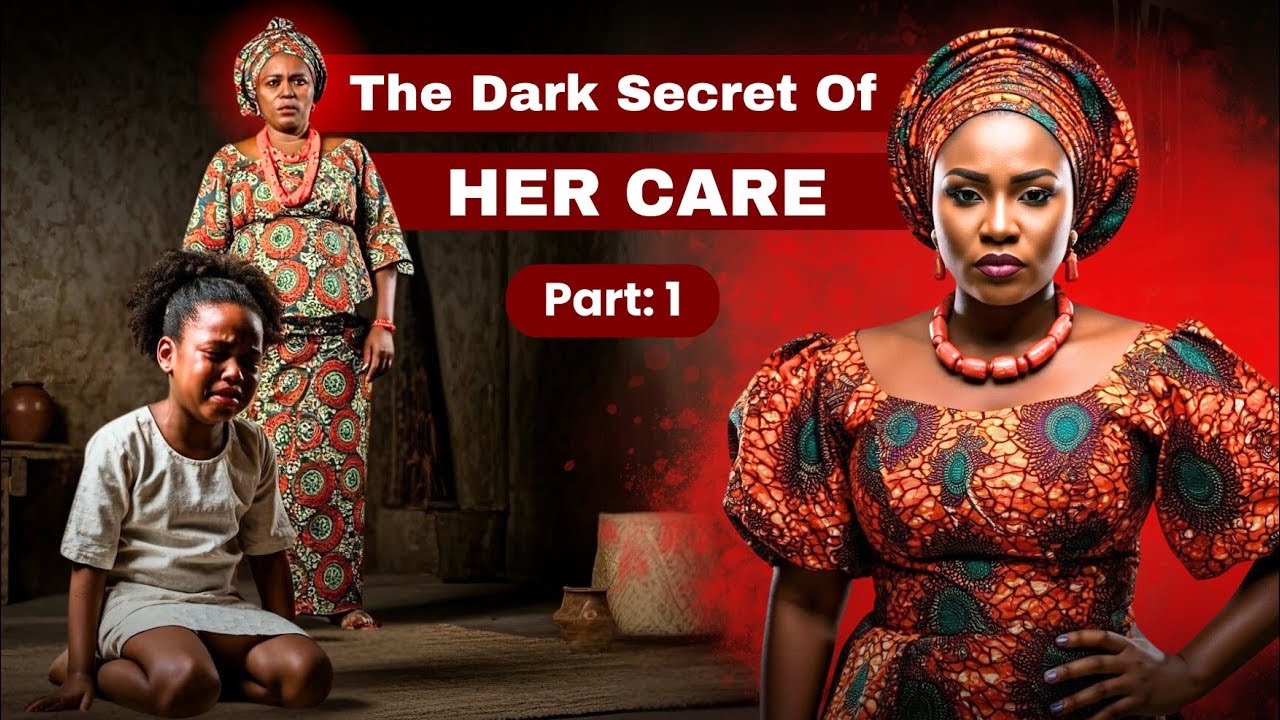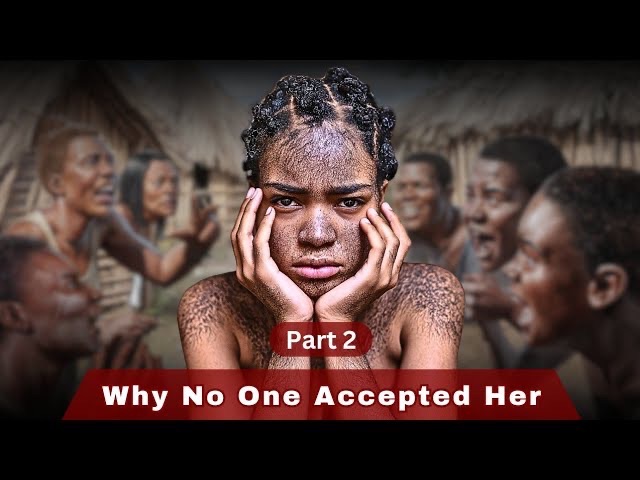MAIN STORY
In the village of Ota, there lived a family of six: Mr Okon, Mrs Uma, and their four daughters. Mr Okon was a palm wine tapper, and Mrs Uma was a trader in their local market. Okon was a happy man who loved his wife and daughters and worked very hard to provide for their needs. However, despite being blessed with four beautiful daughters, deep down, Okon was not satisfied, and he felt incomplete. Okon wanted a son because he believed having a son was more important than having daughters.
According to the tradition of their land, it was believed that any man who didn’t have a male child was not complete and would have no one to carry on his family name. Since Okon was his parent’s only child, he wanted a male child by all means who would carry on his family name and legacy.
Okon and his wife had been married for 10 years, and within the span of those 10 years, they had four daughters because Okon was trying to get a male child. It was because of him that Uma continued to get pregnant, as she wanted to bear a male child for Okon. Already, Uma was under a lot of pressure to bear a male child for her husband, that’s why she gave birth every two years, hoping that she would get lucky and birth a male child so she could make her husband happy.
Two years after their last daughter was born, Okon’s wife, Uma, got pregnant again, and this time, Okon desperately prayed to the gods for a male child. He offered sacrifices to the gods on every sacred day, expecting that the gods would bless him with a male child.
Unfortunately, that never happened. After nine months of carrying her pregnancy, Uma gave birth to another girl. That day, Uma had gone to the labor room with the expectation that she would birth a male child. She even claimed that the symptoms of her pregnancy were different from the symptoms of her first four pregnancies, so she was confident she would give birth to a male child. But after she gave birth, and the midwives screamed in shock, Uma realized that she had not given birth to a male child but another female child.
The reason the midwives screamed in shock when they saw Uma’s baby was because of something they had never witnessed before in their history of helping women give birth. Unlike other babies, who had only little hair on their heads and bodies at birth, Uma’s daughter was born with excess hair on her body. By merely looking at the baby’s face and body, one could see sprouts of hair on her face, head, hands, stomach and entire body. No one had heard of or seen such a child before, and because of that, the midwives abandoned Uma and her child as soon as she delivered.
Disappointed that she had given birth to a strange child, Uma rejected her baby at first because of her excess hair. She claimed that the child was a witch, and she could not believe she wasted nine months to birth such an ugly child. Okon, who was very heartbroken that his wife had not birthed a male child, could not abandon his daughter just because she looked different. So, he convinced his wife Uma to nurse their child, and he even assured her that the hair would break off as the baby grew older and that she would eventually look like a normal child.
After much persuasion from Okon, Uma listened and agreed to care for their child. They named the baby Ima, and with the whole family’s support, Okon and Uma raised Ima, hoping that the hairs on her face and entire body would all break off one day.
Meanwhile, after Ima’s birth, the news of her unusual hairy body had spread in the village of Ota, and almost everyone who heard the news went to Okon and Uma’s house to confirm if it was true. After the villagers confirmed that, indeed, Okon and Uma had given birth to a strange child, some people nicknamed Ima “The animal child,” and some even claimed that she was cursed to be an animal but mistakenly found her way into a human womb. These rumors alone brought a lot of hard times for Okon, Uma, and Ima’s older sisters, but they managed to ignore what everyone had to say about Ima and turned deaf ears.
Years later, while Okon and Uma were expecting that Ima’s hair would fall off as she grew older, the opposite happened. As Ima grew older, the hairs on her face and body grew so much that her entire face, arms, and body were covered in hair, and the only things visible on her face were her eyes. Ima was only six years old when Okon and Uma realized her hair was worsening.
Already by this time, Ima had suffered greatly at the hands of villagers and her peers. Each time she followed her mother to the market, adults and children would stare at her in a very usual and disgusted manner, and kids her age would even gather around her to sing songs of shame. This always made Ima sad and shy, and she grew up with very low self-esteem and self-worth.
Even at their local primary school, teachers complained that Ima’s presence was distracting their other children, so it was better to withdraw her from school. And with that, Ima’s parents withdrew Ima from school. At first, her parents and siblings believed that Ima would be helpful to them at the market, where her mother sold foodstuffs, but as time passed, Ima’s mother, Uma, began complaining that Ima was drawing the wrong attention to her shop and she was indirectly sending her customers away, so she stopped Ima from coming to her shop.
A few weeks after Ima stopped going to school, something bad happened that caused Uma to lock up Ima in a room. That day, Ima was cleaning her father’s compound when some bully kids came to bully her. Because Ima was tired of constantly being bullied by the other children, she stood up to her bullies, and in the process of fighting back, one of the children fell to the ground and was severely injured.
Later that evening, the child and his mother came to Ima’s parent compound and rained abuse on Ima for harming her child. She called Ima a wild beast that should belong in a forest; then she also insulted Ima’s mother, Uma, for giving birth to a hideous child like Ima.
Angered at what her daughter had done and the insults she received from the woman, Uma locked Ima in a room without even hearing her explanation. She blamed Ima for always being bullied and said very hurtful words to her. Okon, who felt pity for his child, tried to stop Uma from locking Ima in that room, but he couldn’t. From that day until Ima grew older, Uma would lock her in that room all day, especially when they were out of the house. She claimed it was the only way to keep Ima from causing trouble.
Uma was tired of the embarrassment Ima brought her and her family. Even from Ima’s birth, she didn’t like Ima, and that’s why she was always harsh on her. Because Ima was always locked in the room, she had no friends and no one to talk to. Even her older sisters ignored Ima whenever she called their names to talk to them. They wanted nothing to do with Ima, and it took Ima a very long time to realize that her family was embarrassed of her.
Because Ima was always lonely, while in the room, she would sing different songs to keep herself company. Some of the songs were old songs she heard her parents and the villagers sing, and some were songs she created from her imagination. Every day, Ima would sing just to make herself happy, but whenever Uma was at home, she would warn Ima to shut up and threaten to hit her if she didn’t.
While Uma locked Ima in a room, she lied to the villagers that she had traveled to live with her distant relatives in another village and wouldn’t return for a long time. The villagers believed her. To ensure that no one would see Ima or that she wouldn’t escape the room, Uma locked the room door with three big padlocks, and the room was only open when it was time to feed Ima.
For 15 years, Ima remained in that room, and the only time she often saw her mother and sisters was when they opened the room door to mock her and laugh at her hairy body. By this time, Ima’s body was so hairy that the hairs covered her skin and were long enough to be plaited. Of all the things, Ima never expected that her mother and sisters would treat her so badly. She loved her mother and sisters so much, but Ima began to doubt herself when they continually called her names, gave her little food, and mocked her for being different.
Sometimes, when her mother and sister would open the room door to mock her, Ima would be so ashamed that she would hide in one corner and refuse to lift her face. She would cry and beg her mother and sisters to stop, but the more she begged them, the more they mocked and called her degrading names.
In the village of Ota, during festive seasons, the villagers and other neighboring villages would organize a singing competition every year, and the winner would be given a grand prize. Since childhood, Ima loved the singing competition and always dreamed of contesting one day. For many years, Ima had been following the competition from the room she was locked in. She knew all the good singers in her village and the neighboring villages, and sometimes, when she was bored, she would pretend she was competing with one of the best singers.
One day, Uma and her daughter went to the market to sell some foodstuffs, leaving only Ima at home. Earlier that morning, Ima’s sisters deliberately refused to give Ima some food because they claimed she wouldn’t stop singing the previous night, and they did that to punish her.
After her sisters and mother left the house, Ima became so hungry that she began to cry and sing. Shortly after she began to cry and sing a sad song, her father, Okon, returned from tapping palm wine, and he heard Ima’s cries and song.
Moved by compassion for his daughter, Okon searched the whole house for the key to Ima’s room. After minutes of searching, he found it in Uma’s basket of clothes. As soon as Okon opened the door and saw Ima, he burst into uncontrollable tears and fell to his knees.
Ima was in a very horrible shape, and she was malnourished. All this while, Okon believed that his wife and daughters had been taking good care of Ima like they claimed, not knowing that they starving her and maltreating her. At that moment, Okon did not care about the excess hair on his daughter’s body; he cared more about her life.
“I have been a terrible father. Please, my daughter, forgive me. I should never have agreed for your mother to lock you up like an animal,” Okon said in tears.
“Papa, it’s ok. I am not angry with you,” Ima said, as she hugged her father, who was still on the ground.
That same day, Okon took Ima out of that room, gave her fresh clothes, and made food for her; her sisters had eaten all the food and left nothing for her. When her mother and sisters returned that evening, they were shocked to see Ima in the living room.
“What is this cursed child doing out here?” Uma yelled at the top of her voice when she saw Ima.
“Woman! Watch your tongue. You have done enough damage to this child,” Okon said to Uma in a furious tone.
“This child is an embarrassment to us and the entire village. We have kept her away for 15 years; why bring her out now? You should have let her die in there,” Uma said.
“And you call yourself a mother?”Okon asked Uma. From his tone, it was very obvious that he was angry. Already, his eyes had turned red, and visible veins could be seen on his forehead and neck.
“May the gods forbid. Ima is not my daughter; she only came to this world through me. It would have been better if she died in the womb than to be born as a beast. Do you know what the other market women call me? Mama animal child. Is that not enough embarrassment?” Uma said.
Even though Ima was in the room, Uma did not mind what she said. At that point, it was evident to Ima that her mother never liked and would never like her just because she was born different. Heartbroken by all she had heard, Ima dashed out of the room in tears and ran into the village.
Since the sun had not set that evening, the village was still very bright and active. As soon as the villagers saw Ima run out of her father’s compound, they gasped in fear and shock at how much hair had grown on her body.
“Is that not the animal child?” Some of the villagers whispered as Ima ran past them.
Unsure of where to run, Ima ran straight to the village’s forest, where she hid until it got dark.
Did you like this story? Tell us your favorite part in the comment section below. Also, are you eager to find out what happened to Ima and her mother after Ima ran away from home? Then watch out for part two.
Please remember to like, share, subscribe to, and follow our channel on Facebook and Instagram. Thank you.

